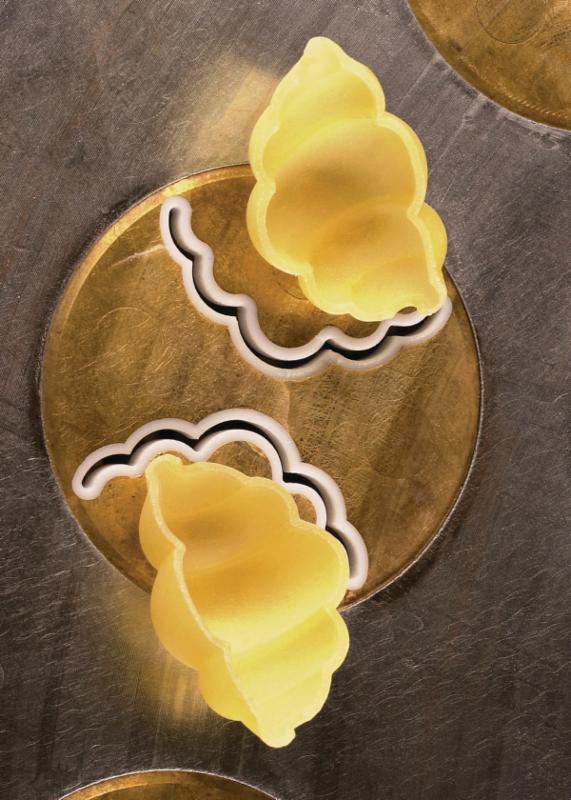 |
Pasta is Energy that
Keeps You Fuller for Longer
December 2017
Welcome to the new issue of The Truth About Pasta, the monthly newsletter from the
International Pasta Organization. Each month's newsletter features a new and different topic -- all pointing to The Truth About Pasta. The truth is...pasta is healthy, sustainable, convenient, delicious, affordable, doesn't make you fat, and much, much more. Be sure to look for each new issue, with more topics and information.
|
We all know that pasta meals are comforting and hearty, but do you know the scientific reason why?
Complex Carbohydrates
Our bodies rely on a steady source of glucose (sugar) from the carbohydrates we eat, to properly fuel are brain and muscles. While some carbohydrate foods are rapidly digested, sending our blood sugar on a roller coaster ride, others (called "complex carbohydrates") offer a slow and steady source of energy, which is much better for our overall health. Complex carbohydrates like the ones in pasta are an important part of your everyday diet, because they break down slowly and keep you fuller for longer.
Glycemic Index
To compare how different carbohydrate foods raise our blood sugar, scientists created the Glycemic Index. Foods with a lower Glycemic Index, like pasta, are slowly digested, and can help keep us satiated over a longer period of time. And when pasta is paired with healthy fats, like olive oil, or fiber, found in legumes and vegetables, the Glycemic Response is even lower.
|
Experts Say:
 Research published in November 2017 in Nutrition, Metabolism, and Cardiovascular Diseases found that pasta meals have a
significantly lower post-meal blood sugar response than bread or potato meals. This means that pasta meals don't spike your blood sugar like some other carbohydrate foods do, and can help keep you fuller for longer. What makes pasta different from other foods? Scientists
explain that "There is a beneficial effect in the way pasta is made. The process of manufacturing reduces its glycemic response."
"If I eat pasta, what do I eat at the next meal? About 10-15% less," explained Dr. Elizabete Wenzel de Menezes, of the Food Research Center and University of São Paulo when she spoke at the
2017 World Pasta Day meeting. She has analyzed many different types of pasta in her lab, and every time she finds a low Glycemic Response, or at most medium. For an even lower Glycemic Response, Dr. Wenzel recommends choosing whole grain pasta varieties.

|
Did you Know?
Pasta cooked al dente, or "to the tooth" has an even lower Glycemic Index than mushy pasta. So for the most health benefits, try not to overcook your pasta. Additionally, thicker, larger pasta shapes (like spaghetti) tend to have a lower glycemic index than thinner, smaller ones.
|
Video of the Month
This video explains why pasta is energy that keeps you fuller for longer. After watching the video, test your knowledge in the
Ted-Ed lesson.
|
Recipe of the Month

Brussels Sprouts, Bacon and Pasta Sauté
Brussels sprouts and bacon are a winning combination in this easy pasta dish.
6 slices bacon, chopped
2 tablespoons olive oil
3 cloves garlic, minced
2 shallots, minced
1 lb. brussels sprouts, thinly sliced
8 oz. gemelli pasta
2 tablespoons lemon juice
2 tablespoons chopped fresh chives
- In large skillet, cook bacon over medium-high heat until crisp; drain on paper towel-lined plate. Chop and set aside. Drain all but 1 tablespoon bacon fat from skillet.
- Add olive oil to skillet; sauté garlic and shallots for 2 minutes. Add Brussels sprouts; cook for 8 to 10 minutes or until tender.
- Meanwhile, cook pasta according to package directions. Drain, reserving 1/3 cup cooking liquid.
- Add pasta and reserved pasta liquid to pan; toss well. Stir in lemon juice and chives.
Tip:
Serve with curls of Parmesan cheese.
Makes 8 servings.
Nutrition Information:
Per serving: Calories: 200, Fat: 6g, Saturated fat: 1.5g, Cholesterol: 5 mg,
Sodium: 160mg, Carbohydrate: 28g, Fiber: 3g, Sugars: 3g, Protein: 8g
|
 |
Follow us
|
For more information, contact
|
|
|
|
|
Copyright © 2017. All Rights Reserved.
|
|
|
 |
|